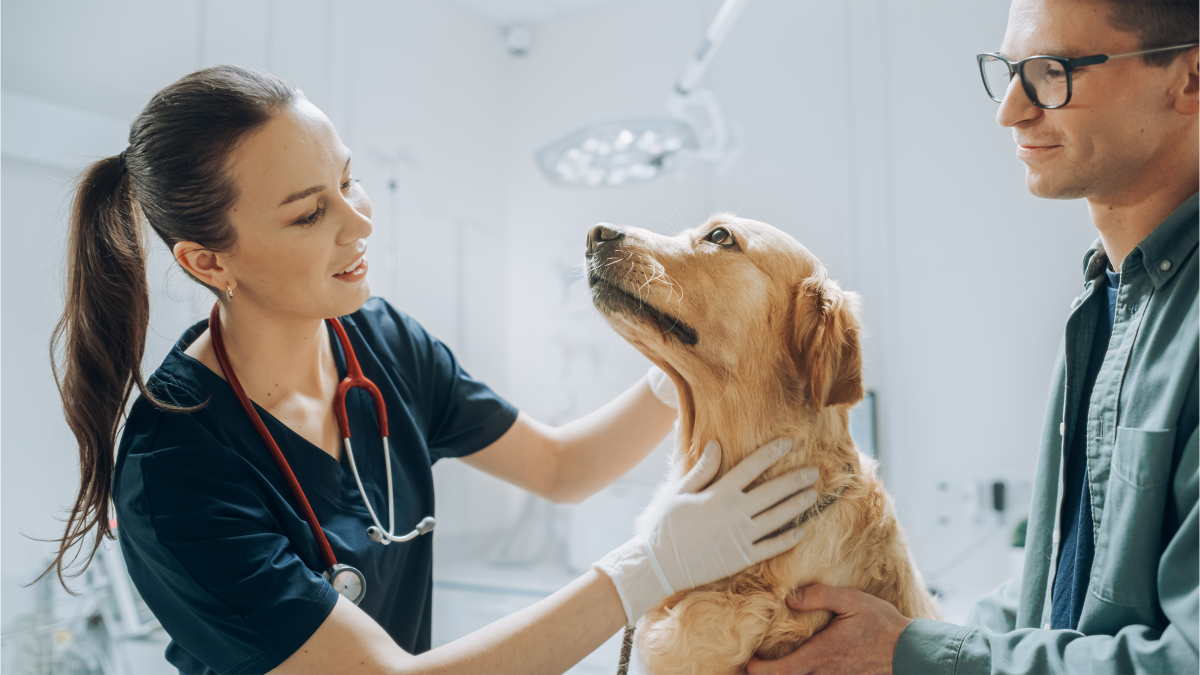The Relevance of Consulting a Veterinary Behaviourist for Your Pet dog's Mental Health
Lots of pet owners forget the importance of their pets' mental health and wellness. Behavior concerns can typically signal deeper hidden troubles that require skilled focus. A veterinary behaviourist focuses on recognizing these intricacies (veterinary behaviour). Their insights can bring about significant enhancements in a pet's behavior and general top quality of life. However, taking care of the process of looking for aid can be daunting. What variables should proprietors think about when picking the appropriate specialist for their pets?
Understanding the Function of a Veterinary Behaviourist
Although numerous animal proprietors may be uninformed, a vet behaviourist plays a crucial duty in addressing the mental wellness of pets. These specialists focus on understanding and modifying pet actions, focusing on the psychological health of family pets. They possess innovative training in animal behavior, psychology, and vet medicine, allowing them to identify and treat behavior problems efficiently.
Vet behaviourists work together closely with family pet owners to assess their pets' behaviors and recognize underlying sources of distress or anxiousness. They utilize various methods, including behavior modification methods, environmental enrichment, and occasionally medication, to boost the animal's psychological health. By establishing tailored treatment strategies, they aim to boost the pet's top quality of life.
Along with attending to specific behavioral problems, veterinary behaviourists likewise provide education to proprietors, fostering a much better understanding of pet behavior and promoting an extra harmonious connection in between pet dogs and their families.
Typical Behavioral Concerns in Pets

Other behavior problems might consist of improper removal, which can come from stress and anxiety or medical problems, and obsessive-compulsive behaviors, such as tail chasing. Comprehending these concerns is important for family pet proprietors, as addressing them early can stop escalation and promote a much healthier, more balanced life for their family pets. Recognizing the root triggers of these actions is important for efficient treatment.
The Advantages of Professional Assistance
Expert advice from a veterinary behaviorist can significantly improve a pet dog's psychological health and overall well-being. These professionals possess specialized understanding in pet actions, allowing them to identify underlying issues that may not appear to family pet proprietors. By performing thorough assessments, they can devise tailored therapy plans that address specific problems efficiently.
Veterinary behaviorists offer evidence-based strategies that advertise favorable reinforcement, guaranteeing that animals develop preferable actions over time. This specialist understanding not only helps alleviate prompt worries however also cultivates lasting behavior improvements, enhancing the bond in between animals and their owners.
In addition, getting in touch with a vet behaviorist can decrease the risk of stress-related wellness problems in pets, as resolving behavioral problems early can protect against acceleration into extra significant problems. Ultimately, the assistance of a veterinary behaviorist equips pet proprietors with the tools essential for cultivating a happier, much healthier environment for their animals.
How to Choose the Right Vet Behaviourist
Exactly how can pet owners guarantee they discover the right vet behaviourist for their furry buddies? Initially, they ought to try to find specialists who are accredited and have a solid history in animal practices. Qualifications from recognized companies, such as the American University of Veterinary Behaviorists, can be a great sign of experience.
Next, family pet owners ought to consider the behaviourist's experience with details issues, such as stress and anxiety or hostility, relevant to their pet. Reading reviews and looking for referrals from veterinarians or fellow pet dog proprietors can supply beneficial understandings.
It is likewise necessary to assess the behaviourist's method to treatment, ensuring it aligns with the owner's viewpoint on animal welfare. An initial assessment can assist evaluate communication style and rapport, which are critical for effective collaboration. Ultimately, picking the appropriate vet behaviourist includes complete research study, open communication, and a focus on the pet's one-of-a-kind demands.
Applying a Treatment Prepare For Your Pet
After choosing a suitable vet behaviourist, the next action entails carrying out a tailored therapy strategy for visit their website the animal. This plan typically consists of a combination of behavioral alteration techniques, ecological modifications, and, sometimes, medicinal treatment. The veterinary behaviourist will certainly describe specific objectives and techniques, guaranteeing they line up with the pet's one-of-a-kind demands and situations.
Uniformity is important in executing the therapy plan. Family pet proprietors should diligently comply with the suggested methods, which may include normal training sessions, modifications in day-to-day routines, or the introduction of enrichment tasks. Keeping track of the pet dog's progress is additionally important; proprietors need to keep in-depth documents of behaviours and any type of adjustments observed.
Regular follow-ups with the veterinary behaviourist permit changes to the treatment plan based on the family read this post here pet's response. By actively taking part in this procedure, pet dog proprietors contribute significantly to improving their pet dog's psychological health and overall high quality of life.
Regularly Asked Inquiries
How Do I Know if My Animal Requirements a Behaviourist?
Figuring out if a pet dog calls for a behaviorist entails observing persistent anxiety, aggression, or damaging habits. Furthermore, considerable modifications in regular, setting, or wellness might show the demand for specialist advice to resolve underlying concerns properly.
Can Vet Behaviourists Assist With Training My Pet dog?
Vet behaviourists possess specialized knowledge in pet habits and can efficiently aid with training. They customize strategies to resolve certain issues, ensuring a comprehensive approach that sustains both the pet's health and the owner's training objectives.

What Qualifications Should a Veterinary Behaviourist Have?
A veterinary behaviourist ought to hold a veterinary degree, complete advanced training in animal behaviour, and possess relevant certifications Get More Information from recognized organizations. Experience in clinical practice and a deep understanding of animal psychology are additionally essential qualifications.

Are Digital Examinations With a Veterinary Behaviourist Effective?
Virtual appointments with a vet behaviourist can be efficient, providing convenience and access (canine behaviourist near me). Nonetheless, the success commonly relies upon the pet's certain issues, the proprietor's capability to implement suggestions, and the behaviourist's experience in remote evaluations
Exactly how Lengthy Does a Treatment Strategy Usually Require To Program Results?
The duration for a therapy plan to show outcomes can vary considerably, frequently varying from a couple of weeks to several months. Aspects such as the pet's particular concerns and the uniformity of implementation play necessary roles.